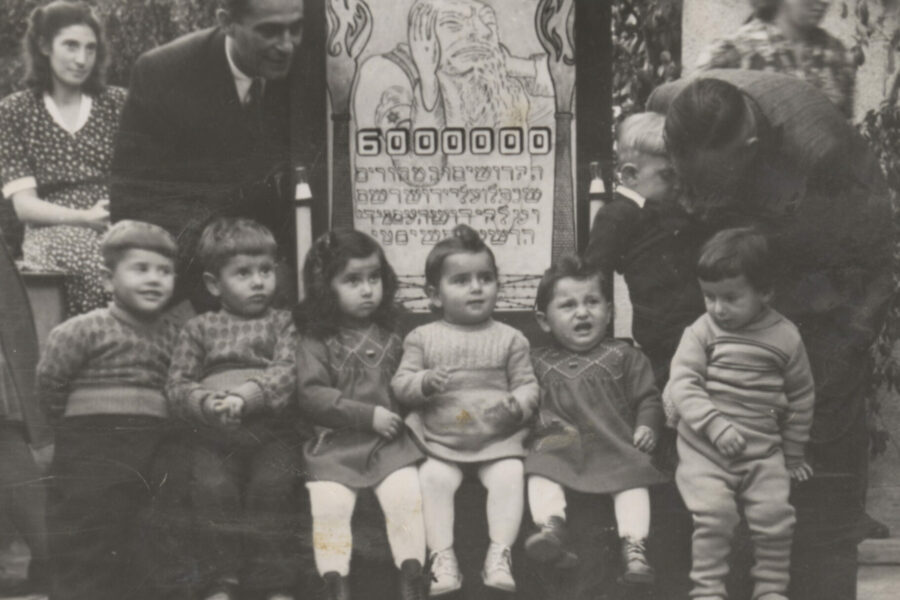I was ten when the Great Patriotic War began. Very alarming news came from the front line, and our family began thinking about evacuating from Kiev, Ukraine. My uncle (my mother’s brother-in-law) Misha Khazanovich and a neighbor, Grisha Boguslavski, talked to our families about the evacuation process. Both men were very respected members of the housing committee; therefore, not only our own family but also two other families that didn’t have men asked Misha and Grisha to lead the way. Public transportation had stopped working by that time, so they hired a coachman with a big cart. The cart carried belongings and the little children, and the adults went on foot. The entire group consisted of two elderly men, seven children, and nine women—a total of eighteen people.
When we came to Kiev’s freight station, we saw a military train being unloaded. There were horses everywhere, and as soon as soldiers got the horses out of the cars, air bombing began. We hid under the train and listened to the air attack. It was scary. After the shooting ended, we came out from the hiding place, cleaned one of the cars that had held horses, and loaded our stuff into it. The train started to move. At the first railroad junction we saw the remains of railroad cars. Before our arrival, Germans had bombed the station. All adults and children who could work were asked to help clear the railroad tracks, and the train immediately was sent off, for fear of a repeated attack. After some stops during air strikes, we arrived at Nizhnyaya Syrovatka, Sumska Region, where our group was loaded into carts and brought to the nearest kolkhoz (collective farm). We stayed there for several days. We frequently saw fascist aircraft flying on their way to bomb Kharkov.
We had to move farther away because the enemy was approaching rapidly. We got the cart that took us to the train station again. There we negotiated with the couplers, who secretly brought us to the train and directed us to a designated car, which we boarded. Afraid of being discovered and thrown out, we didn’t open the doors during the train stops at the stations. We occupied a Pullman car packed with bags of salt. One corner of the car was used as a toilet; we settled down in the other. We opened the doors and aired out the railroad car only when it was in motion. Before the train stopped, the door was shut again. We did not have a lot of food and ate only some potatoes or bread that peasants gave us for the road. At one of the stations, we were discovered and escorted from the train. We were told that the load of salt was considered to be a strategic product and that we could not ride with it.
However, we got lucky again. We got permission to board a freight train with an open platform. Some equipment was being evacuated to the East, and there was space for us. At night a thunderstorm broke out, and rain poured down on us. We got wet and freezing cold, although it was August. Our leaders knew that this train also had a covered cabin where those who escorted the equipment rode safely. They were asked to at least allow the children to take cover and be warm. Later the whole company moved into the cabin, and we continued to go farther. Because we had some refugee documents given out in Kiev, sometimes at the stations it was possible to obtain bread, soup, or porridge.
We arrived at Kuybyshev and were sad to hear that the Nazis occupied Kiev. There were tears. The Boguslavsky family decided to remain in Kuybyshev, but upon the counsel of Uncle Misha we decided to go to Tashkent, Uzbekistan. The logic was simple: it was warm there, and we did not have warm clothing or footwear, so we should be okay. Uncle Misha wrote “Tashkent” on the doors of our railroad car so couplers knew where to place it.
Without any unusual adventures, we arrived in Tashkent. At the evacuation point they fed us, we passed sanitation control, and then we were sent to the Andizhan Region into a village of dispossessed Russian families. In the village our family was settled with an Uzbek family. We lived in an addition to the house where the owner’s cow stood in one corner and we huddled in another. The owners had three children. Their older boy studied Russian, and he helped us communicate with the hosts. As new members of the collective farm, we did not have ration cards, but we were given some food because we worked on the farm. Everything that we grew was going to the army, and the slogan was “Everything for the front.”
We lived in hunger and cold for more than a year. Then they moved us to another place in a small town in the same region, where we obtained ration cards. The local population related differently to those who evacuated here. I want to describe one episode. For several months the kolkhoz did not give us any food or pay, and then we got two kilograms of barley. I went to the collective farms mill, which was supposed to offer collective farmers free grinding of their grain. The miller, an Austrian who had been a prisoner of war since World War I, sympathized with the refugees. When I approached him with the request to process my barley, he poured it on the millstone, scooped up some wheat, and added it to the barley. When I brought home this wealth, Mom did not believe her eyes. Then for a long time we had a holiday. Mom could make some blintzyy, and we felt blessed. We were safe, and we were able to avoid the fate of many friends and neighbors who went to Babiy Yar.
Written by Fridrikh Rabinovich, Never Heard, Never Forget: Vol. I, 2017






